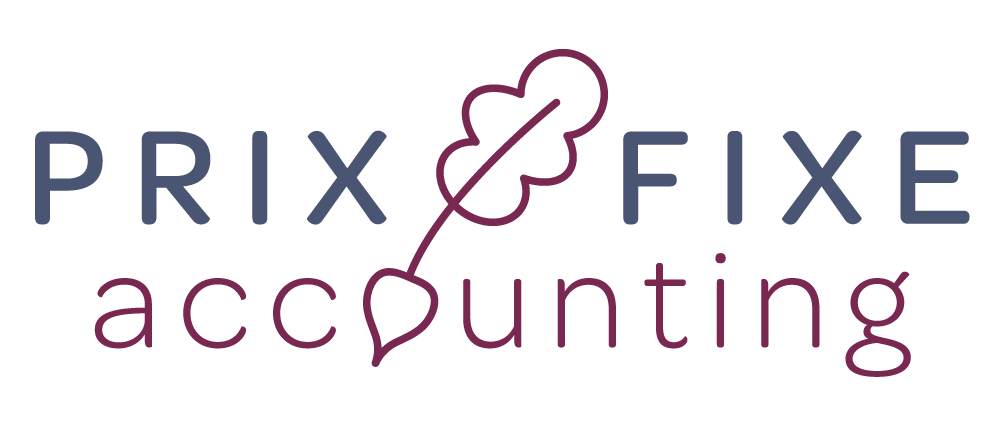A point-of-sale (POS) is an essential piece of equipment for many businesses, but selecting the right POS system can feel overwhelming with so many options.
How a Good Accountant Would Have Saved "Bad Vegan" Sarma Melngailis
If any of you spent the last couple weekends on the couch recovering from a long week, you’ve probably been watching Netflix’s wild true crime documentary “Bad Vegan,” which checks all the boxes: Cult of Personality, Fraud, Gambling, Angels, Domino’s Pizza, & Accounting.
The story is about the owner of a Union Square based Vegan restaurant called “Pure Food & Wine Restaurant” owned by celebrity chef, Sarma Melngailis. A popular haunt among weird celebrities, the restaurant enjoyed a significant amount of financial success in its first years, despite being highly leveraged due to a costly partner buyout. At one point Sarma is bringing in nearly $7m a year in gross revenue. Things start to take a strange turn when Sarma starts dating Anthony Strangis- a man she met on twitter and deepened her relationship with on Words with Friends. I won’t spoil the plot, but Sarma ends up handing over $1.7 million to Anthony Strangis and leaving the government, her employees, and investors out in the cold to the tune of $6.14 million.
By the time the credits are rolling, I am actively yelling “Where the #$%! Is Pure Food & Wine’s accountant?!?!?!” Perhaps the most vexing question that this show doesn’t ask. Sarma has a number of investors even taking on ANOTHER round of investment in the midst of this scandal. The fact that investors took Sarma’s word after being burned once is absolutely galling. The fiscal irresponsibility here is stunning on so many levels.
So, this begs the question: “How could a good accountant have helped Melngailis avoid this entire fiasco?”
Note: When I say “accountant,” I don’t mean that guy you see once a year to do your taxes. That’s a CPA or EA. An accountant (or bookkeeper) is someone who records all your financial transactions for the other 364 days of the year. It's an important distinction. If you don’t have one of those… well… watch Bad Vegan.
The famed vegan “lasagna”
Adhering to the Operating Agreement
An operating agreement is the constitution of your business. It sets the rules for how the business is run. It's a critically important document that discusses who’s in charge of the books, who runs the business, and how the profits get split up. It’s noteworthy that she had investors, as that usually means that there is some sort of breakdown of how the profits are split up (usually by a percentage of the total money invested in the business).
Rich folks & banks don’t just give you a wad of cash because they enjoy your vegan lasagna (which by the way, looks horrific). They invest because they want a return on their investment. In short: they want to make money. Investors also don’t appreciate it when they see one partner of the business making significantly more than what the operating agreement says, which is what makes this story so strange from an accounting perspective. If the investors were receiving regular reporting from the accountant, they surely would have noticed this massive discrepancy. Which brings me to my next point…
Regular Reporting
Part of having investors is keeping them informed of what is going on with the business. Operators don’t generally like having someone else have a say in their business. However, unless the operator has enough cash on hand to open the business themselves, that’s just the way it has to be. One of the worst things an operator can do is try to keep an investor in the dark. It's the easiest way to get yourself booted out of your own restaurant, or be sitting across the table from an attorney from a law firm that costs $3,000 an hour.
Operators should be closing books on a monthly basis, and reporting the performance of the business on a monthly, or at least quarterly, basis. Even better, there should be a regular meeting with investors to answer any questions or concerns they may have. Although these investors' questions you may find uncomfortable, it’s certainly better than facing down the investor’s version of Thor’s Hammer: their attorney James from Pavalock-Bagarose-Pikula-Whitney & Hammersmith. An internal or external accountant can prepare these investor documents on a regular basis, and when Sarma’s distributions started to pull away from the rest of the partners in relation to her percentage of ownership, red flags should have been going through the roof.
Control Over Cash Flow
Possibly one of the best things that a business with investors can do is to have a 3rd party responsible for cash flow. It takes the temptation away from operators to spend, or to focus on the cash flow, and instead focus on the operations of the business. It's a very freeing prospect to operators, and it's a comforting setup for investors knowing that the money is in capable hands.
Fiscal Responsibility
Throughout the series, viewers watch Sarma initiate dozens of wires, ranging from $10,000 to $190,000 per wire. Part of the job of an accountant is to keep track of the support for financial transactions. The IRS requires proof of all transactions over $75 which these wires most certainly were. An accountant would have discovered that these transactions were being sent to either the casinos or to Strangis himself, and like the Kool Aid man, James from Pavalock, Bagarose Pikula Whitney & Hammersmith would have been kicking down the door to Pure Food & Wine Restaurant.
It is also worth noting that accountants have a fiduciary duty to report any accounting irregularities to investors, or to the government. Frequently, when you see a whistle-blower case, you’ll note that the employee is an accountant.
Antony Strangis’ “Power Meeting” would not have worked
There was this one bizarre moment in the series when Anthony Strangis (now Sarma’s husband) says that he has taken over the company, that the investors have been paid off, and that all decisions need to go through him. His confidence seems to at least reassure employees enough for them not to question it. Had an accountant been in the room, the meeting would have gone over as well as a screen door in a submarine. The accountant would have had so many immediate questions that would require proof that would have turned Anthony’s plan to dust.
“Where is the purchase agreement?”
“How were the other investors paid? Please provide proof”
“Where is the new operating agreement?”
Any one of these questions would have an immediate impact. Accountants are a fickle, and distrusting type, and we don’t take anything at face value. It’s nothing personal, but its reasons like this that we have this distrust so deeply entrenched..
Sarma Melngailis ended up costing the government, employees and her investors over $6 million. This all could have easily been avoided had she just hired an accountant. Good accounting can be pricey, but at the end of the day, it's a far lower price than poor accounting, or no accounting.
What Should You Look for in a Restaurant POS?
Benefits of Outsourcing Payroll
What Does a Bookkeeper Do in a Restaurant?
Any successful restaurant needs successful financial oversight, but owners and managers have plenty to do aside from these concerns, like running the restaurant.
That’s why management may want to consider restaurant bookkeeping to support these duties, especially during the busy seasons or expansion. After all, everyone could use a cover now and then.
What is a restaurant bookkeeper?
A restaurant bookkeeper oversees financial and budgetary records of a restaurant, commonly known as the “books”. They ensure the accuracy of figures like revenue and expenses, track inventory and tax obligations, and make recommendations to maximize profit.
Here are some of the specific tasks that restaurant bookkeepers tackle.
Reports
Above all, bookkeepers assist with tracking the restaurant’s financial performance so that you can make sure you’re putting more money into your pocket than you’re taking out of it.
This involves monitoring and recording metrics like revenue and expenses for accounting reports, which allow management to address inefficiencies and improve operations.
Expense Tracking
Rent, equipment, utilities, marketing? You might see these expenses in your scarier dreams, but keeping count of them during the daily bustle of restaurant life can prove more difficult.
A bookkeeping service will stay on top of your obligations to help you avoid missing your payments and keep your costs in perspective.
Order and Receipt Reconciliation
While software can track orders and receipts nowadays, double-checking these results is important.
A bookkeeper will review order history to ensure that all customers have been appropriately charged so that you don’t lose out on revenue.
Inventory and Invoices
By Analyzing figures like sales volume and item popularity, a bookkeeper can help to advise on food and supplies orders so that neither too much nor too little is ordered.
They can also reconcile vendor invoices with shipments to ensure all materials received have been properly charged and logged.
Payroll and Taxes
Bookkeepers can review timecards to ensure that labor payments are accurate. As part of this responsibility, they’ll monitor restaurant payroll and income taxes so that you have proper records during the most wonderful time of year – tax season.
On the topic of taxes, a restaurant bookkeeper will also tally the sales tax owed by your business so that you don’t accidentally overlook those requirements either.
Deposits
Having sufficient cash on hand is critical for providing change and employee tip-outs, but you’ll also want to keep reserves in the bank for credit or debit expenses.
By employing the help of a bookkeeper, you’ll have someone who can maintain a proper balance of funds so that you always have your money exactly where you need it.
Lighten the Load
Restaurant bookkeeping services are an investment in your business’s financial well-being and yourself as an owner or manager.
With help on bookkeeping duties, you’ll have more time for the things you need to do, like de-escalating a Yelp war with a demanding customer, as well as the things you love to do, like curating an unforgettable dining experience.
How to do bookkeeping for a small restaurant
When it comes to owning a small restaurant, it takes more than simply creating delicious food to ensure your business succeeds. What about the backend side of things? You know, the business admin and bookkeeping? Even the smallest of restaurants need to keep an eye on their accounts to effectively manage the day-to-day finances of their business and track any profits they’re making while knowing where to make any future improvements.
Here are the first steps you should take to get you started.
Consider how you will keep your records
Depending on your budget, there are various ways that you can keep your books, ranging from setting up your own spreadsheet to hiring a professional team of accountants who provide restaurant bookkeeping services and can do all of the hard work for you.
Know what bookkeeping tracks
In short, if you’re doing your own bookkeeping, you need to track each of these things:
• Sales: How much money is going into your till
• Cost of food and supplies: How much money you’re spending on food for your menu
• Labour: How much money you’re spending on staff labor
• Inventory value: The monetary value of the stock you are holding at all times
• Fixed costs: These are usually regular outgoings, such as rent and waste disposal
• One-off costs: Anything unexpected that you’ve spent money on
Accounting ratios
To work out where there is room for improvement at your restaurant, you should create monthly profit and loss statements using the information above. You can then use the following formulae to determine future business strategies:
• Gross profit = sales – cost of goods sold
You can use this figure to create sales targets
• Gross profit margin = (gross profit / revenue) x 100
You can use this figure to help set prices on your menu
• Operating profit = gross profit – operating expenses (including labor, fixed costs, one-off costs)
This is the amount left over after all operating costs are taken from gross profit
• Net profit = operating profit – taxes and other expenses
Ultimately, this is the figure you need to focus on to determine whether your restaurant is making money or not.
Tips for small restaurant bookkeeping
It can seem pretty overwhelming at first, so here are our top tips to bookkeep efficiently:
• Keep track of every payment, including all of the dates they were made
• File bank statements and invoices in order, so you have them on record, and they are easy to locate when necessary
• Be strict with creating monthly profit and loss statements
• Consider hiring a company to do your bookkeeping for you, which will, in turn, free up your time, so you can concentrate on growing your restaurant business
It’s perfectly understandable to want a team of qualified accountants to look after your books for you, especially if you’re a chef with a passion for delivering mouth-watering meals or a restaurateur with a desire to mingle with diners front-of-house. Of course, hiring professional bookkeepers also reduces the risk of error when it comes to your financial recordings.
If you’re a small restaurant owner, then get in touch with PrixFixe. Our friendly team of experts provide accounting and bookkeeping services, specifically for businesses within the hospitality industry.
Restaurant End of Year Accounting Checklist
Food Cost Formula Menu Pricing
Restaurant Quickbooks Chart of Accounts Template
Understanding Prime Cost For Restaurant Bookkeeping
If you’ve been in the business for a while, you’ve heard the terms “food cost” and “labor cost” thrown around. Generally speaking, it usually comes up when partners at a restaurant are reprimanding the kitchen about how one of the metrics are absolute garbage. You’ve also probably heard the chef counter with an excuse about how good the other metric is. Arguments ensue. Voices raise. Cooks run for cover.














